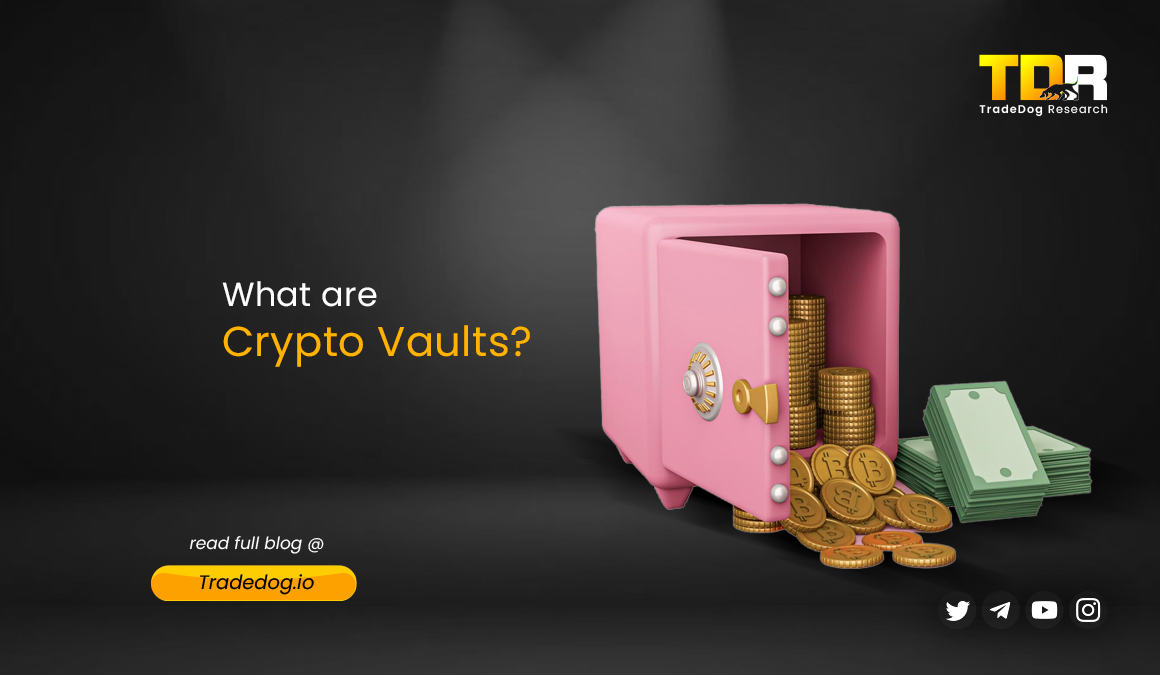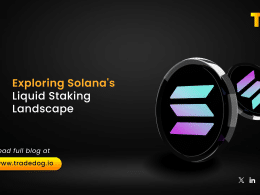Quick Links
Storing cryptocurrency securely is a top concern for any investor. While crypto wallets offer a convenient way to hold and manage digital assets, they can be vulnerable to hacking attempts. This is where crypto vaults come in – a robust security solution designed to safeguard your valuable crypto holdings. Imagine a specialized digital safe designed for your cryptocurrency. That’s essentially what a crypto vault is. It’s a secure storage service that provides enhanced security features compared to standard crypto wallets. These features include:
- Offline Storage: Crypto vaults often store your private keys and digital assets offline, in a secure environment disconnected from the internet. This significantly reduces the risk of online attacks like hacking and malware theft.
- Multi-signature Authentication: Multiple approvals may be required before a transaction can be completed. This adds an extra layer of security, making it more difficult for unauthorized individuals to access your funds.
- Withdrawal Delays: Transactions might be subject to waiting periods, giving you time to detect and potentially reverse fraudulent activity.
Why Choose a Crypto Vault?
- Enhanced Security: Crypto vaults offer superior security compared to regular wallets due to features like multi-signature authentication, withdrawal delays, and offline storage. These features make unauthorized access significantly more difficult and give you time to react in case of suspicious activity.
- HODLing Support: The withdrawal delay feature makes crypto vaults ideal for investors who plan to hold onto their crypto assets for extended periods. This time buffer helps prevent impulsive trading decisions.
- Transaction Cancellation: Crypto vaults allow you to cancel transactions within a designated delay period, providing an extra layer of control over your digital assets. This can be helpful if you accidentally initiate a withdrawal or suspect fraudulent activity.
How Crypto Vaults Work
Unlike wallets that allow for easy transactions, crypto vaults prioritize security by keeping your assets offline. Here’s a breakdown of the process:
- Depositing Crypto: You can either initiate a transfer from your regular wallet or provide the sender with the unique address linked to your vault.
- Enhanced Security Measures: Once deposited, your crypto rests within a secure environment guarded by multiple layers of protection. This might include offline storage methods like hardware wallets, robust encryption protocols, and multi-signature authentication, which requires multiple approvals for any transaction to proceed.
- Withdrawal Process: Retrieving assets from a vault is intentionally designed to be slower than a regular wallet, adding another layer of security. You’ll typically need to submit a withdrawal request specifying the amount you want to withdraw. Based on the vault type, the request is processed and upon the authorization and completion of the waiting time period the amount is released. This buffer allows users to cancel the transaction if it appears suspicious.
Crypto Vaults vs. Wallets
While both wallets and vaults store cryptocurrency, their purposes differ significantly. Crypto wallets prioritize convenience, allowing you to easily send, receive, and manage your digital assets. They are often connected to the internet, making them more susceptible to online threats.
On the other hand, crypto vaults prioritize security over accessibility. Their robust security features, including offline storage and multi-factor authentication, make them ideal for storing large amounts of cryptocurrency for the long term.
Crypto Vaults vs. Cold Wallets and Hot Wallets
- Cold Wallets: Similar to vaults, cold wallets offer offline storage, making them highly secure. However, unlike vaults, cold wallets require physical devices to access your crypto. This can be inconvenient and introduces the risk of losing the device itself.
- Hot Wallets: Hot wallets are software applications that allow you to store and manage your cryptocurrency online. While convenient for everyday transactions, their constant internet connection makes them more vulnerable to hacking.
Are Crypto Vaults Right for You?
While crypto vaults offer undeniable security benefits, there are some trade-offs to consider:
- Limited Accessibility: Crypto stored in a vault becomes less readily available. Withdrawing funds can be a slow process due to the multiple approvals and withdrawal delays. This can be inconvenient for day traders or those who need frequent access to their crypto.
- Technical Complexity: Setting up and managing a crypto vault can be more technically complex compared to using a regular wallet. Some users may find the process daunting, especially those unfamiliar with crypto technology.
- Provider Risk: The security of your crypto assets ultimately depends on the chosen vault provider. It’s crucial to select a reputable provider with a proven track record of security and reliable customer support. In case of a security breach or technical failure with the provider, your assets could be at risk.
- Recovery Challenges: Recovering lost credentials or access to your vault can be challenging. Some providers may have limited customer support options, making the recovery process lengthy and complex.
- Fees: Some crypto vault providers may charge fees for using their service. These fees can vary depending on the provider and the features
Selecting the Perfect Crypto Vault
Here’s a streamlined approach to simplify your search:
First, identify your priorities. If you’re a long-term investor holding significant amounts of cryptocurrency, prioritize a vault with top-notch security features like multi-signature approvals and offline storage. Prioritize multi-signature approval, which requires multiple confirmations before a transaction finalizes. More signatures mean stronger security. However, if you trade frequently, consider the trade-off between security and accessibility. A vault’s withdrawal delays might be inconvenient for frequent transactions.
Next, compare features offered by leading crypto vaults. Look for a user-friendly interface that simplifies deposits, withdrawals, and account management. Compare fee structures across vaults. Some might have free basic services with withdrawal or transfer charges, while others may have membership or signup fees. Ensure the chosen vault operates in your region to avoid any limitations.
Don’t forget reputation matters. Research the vault provider’s track record for security and operational stability. User reviews can offer valuable insights into the vault’s actual security, customer support, and overall functionality.
Finally, consider some additional factors. Some vaults provide insurance for your crypto assets, offering peace of mind for substantial investments.
Conclusion
Crypto vaults offer a secure solution for storing large amounts of cryptocurrency for the long term. Their enhanced security features come at the cost of some accessibility and require careful consideration of the chosen provider. If you prioritize the safety of your crypto assets and are comfortable with a slower withdrawal process, a crypto vault might be the right choice for you. By understanding the trade-offs and how they compare to other storage options, you can make an informed decision about the best way to safeguard your digital wealth.









